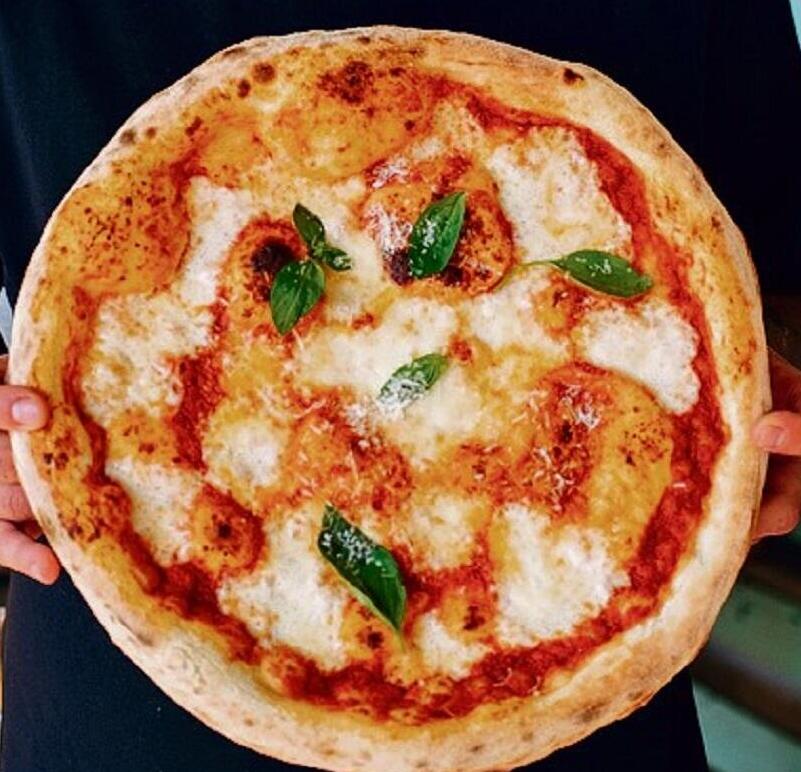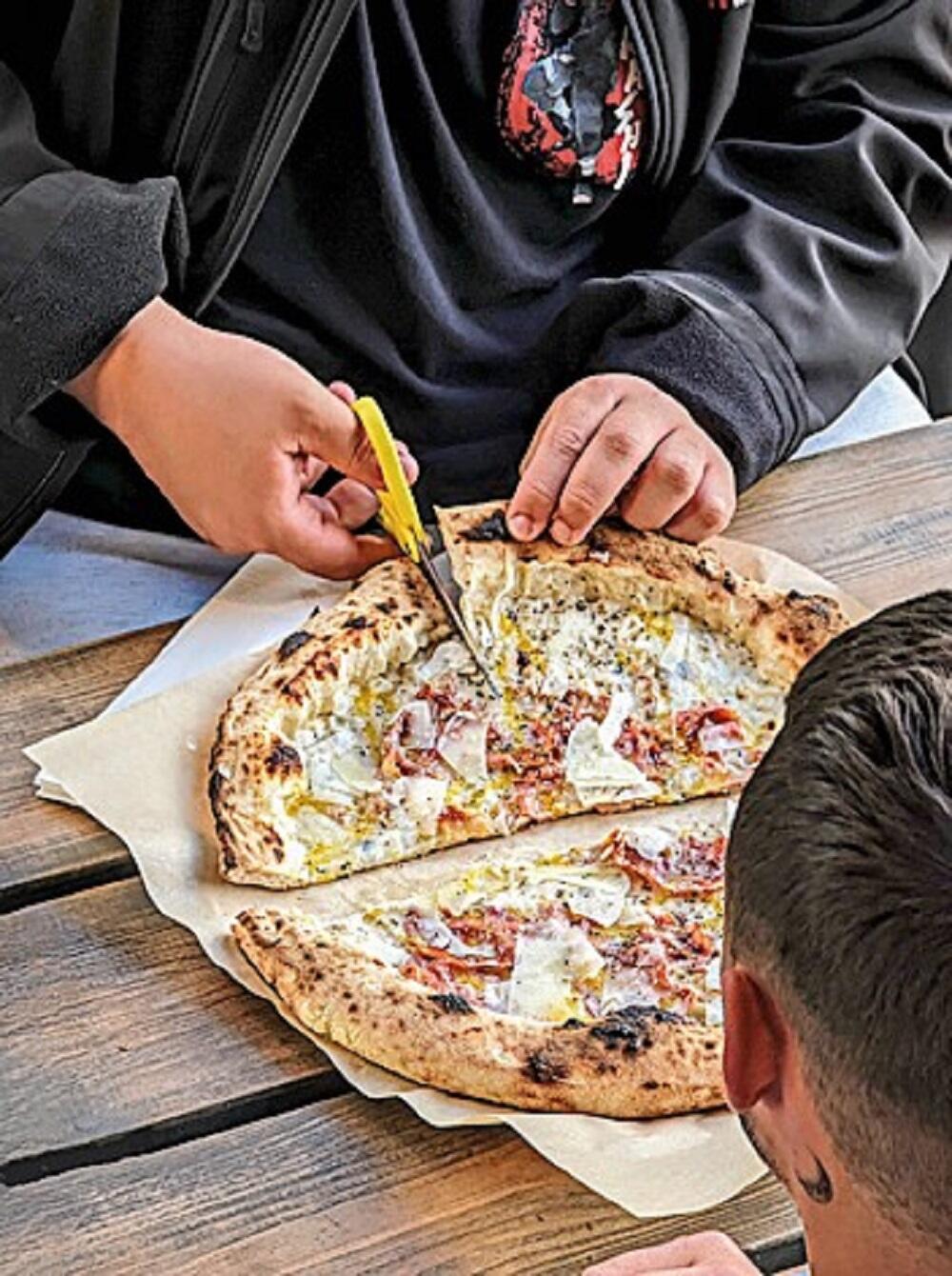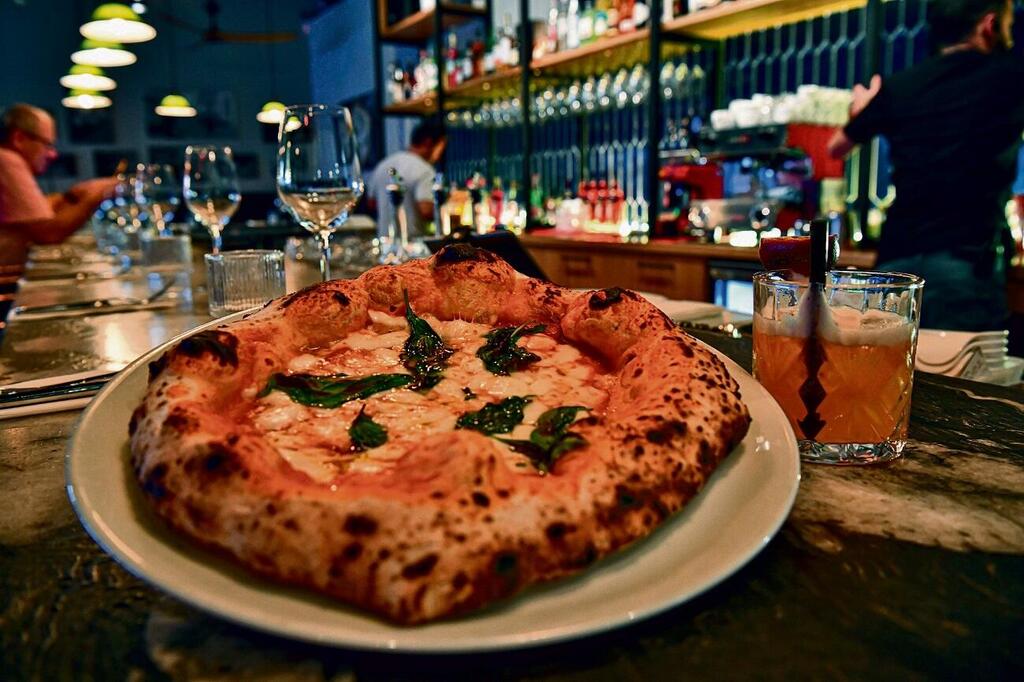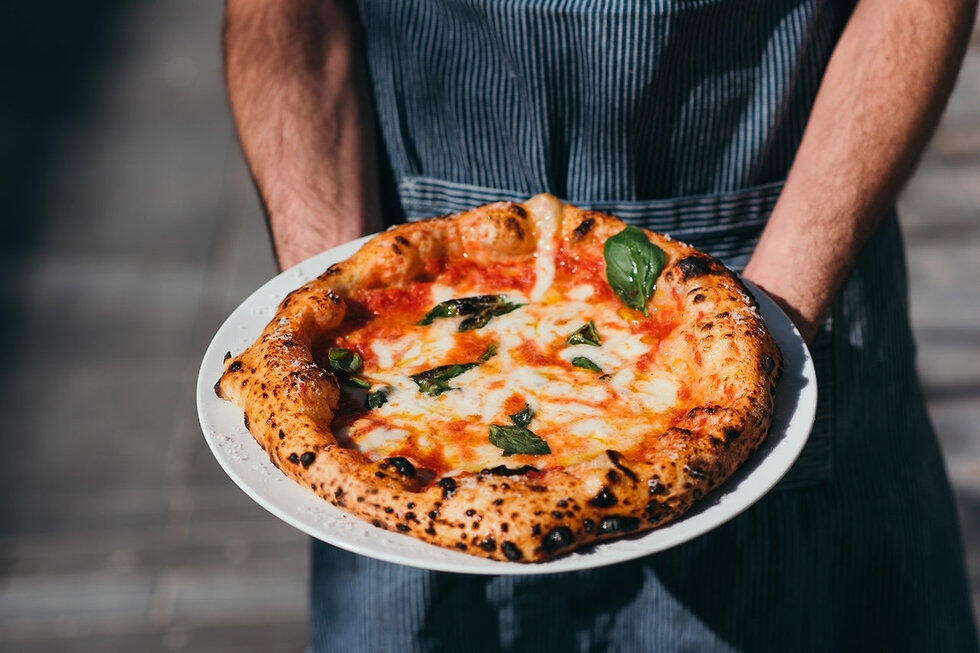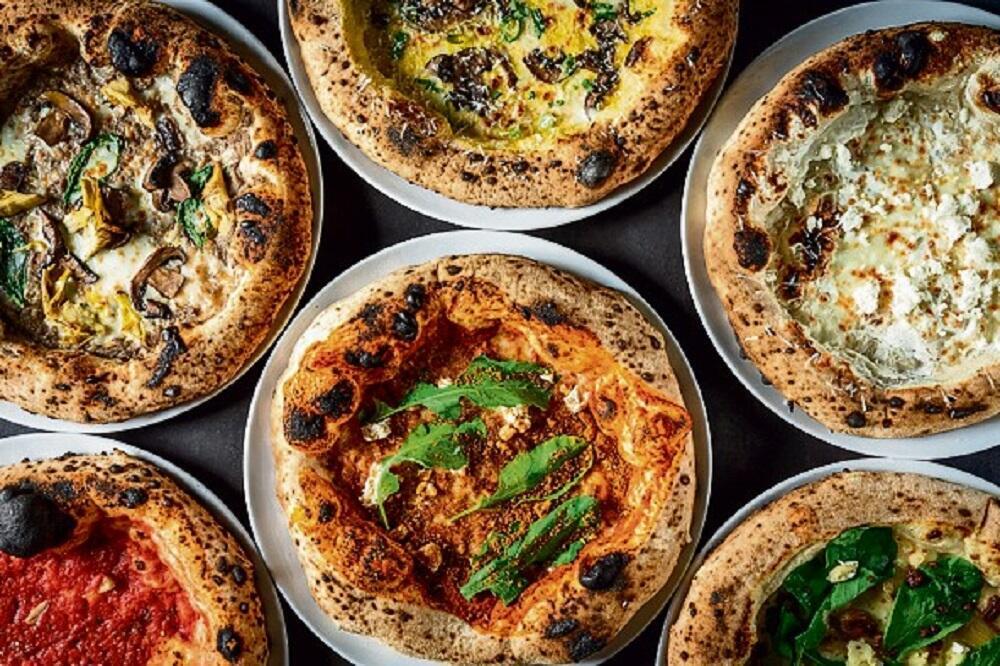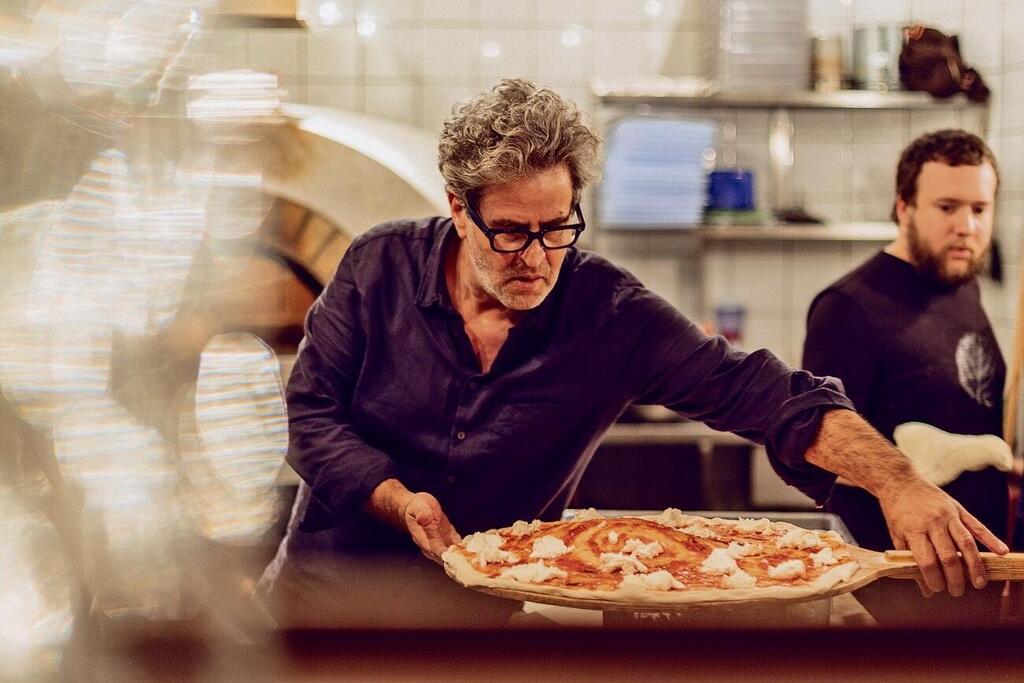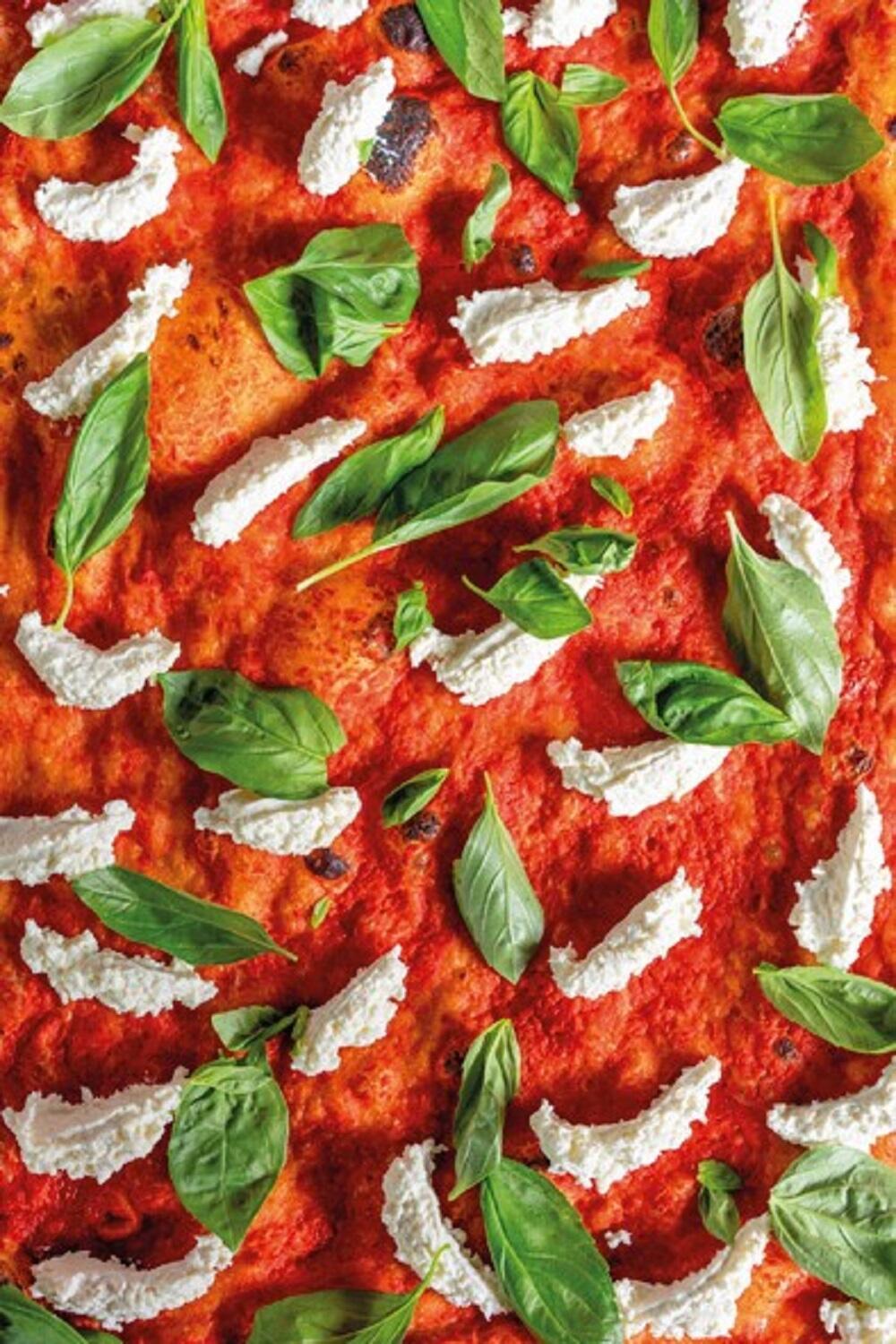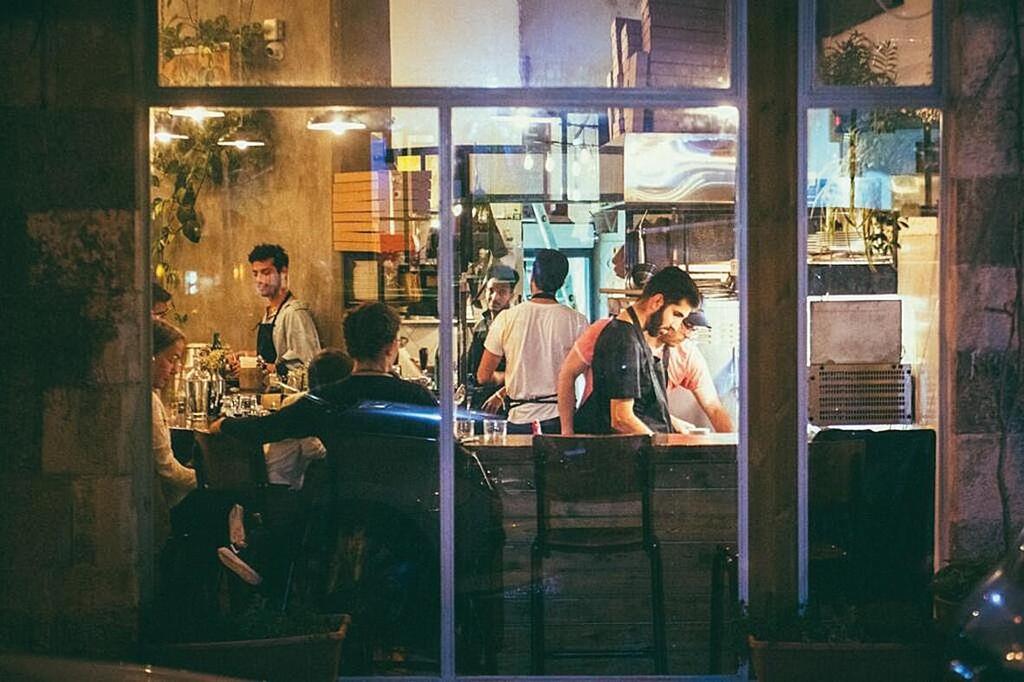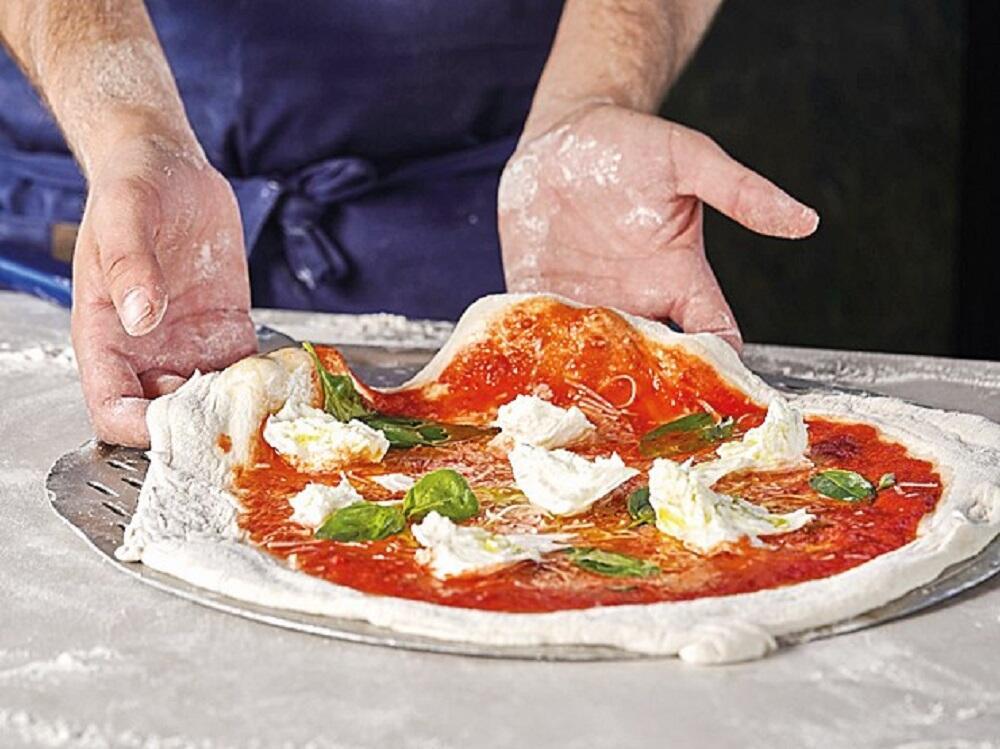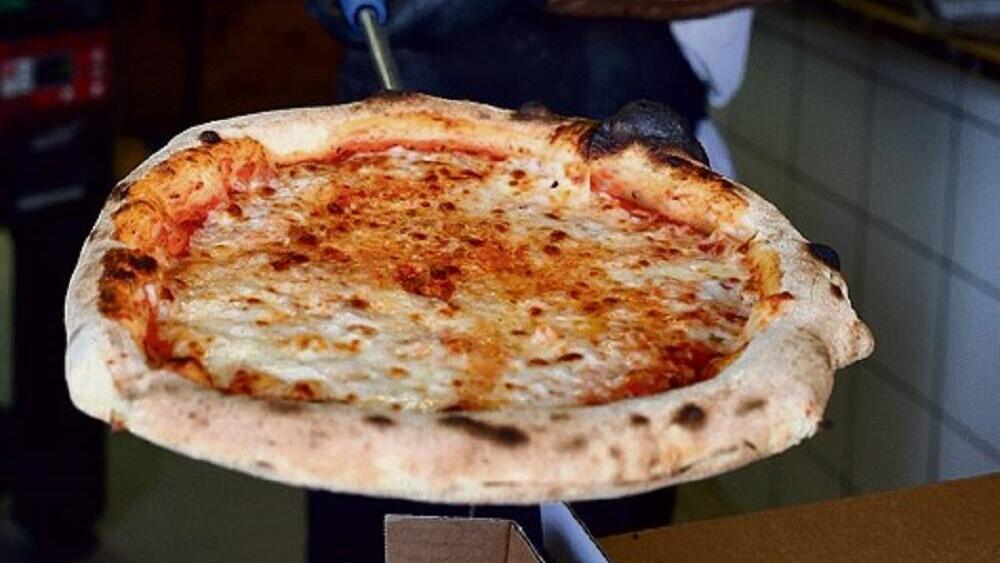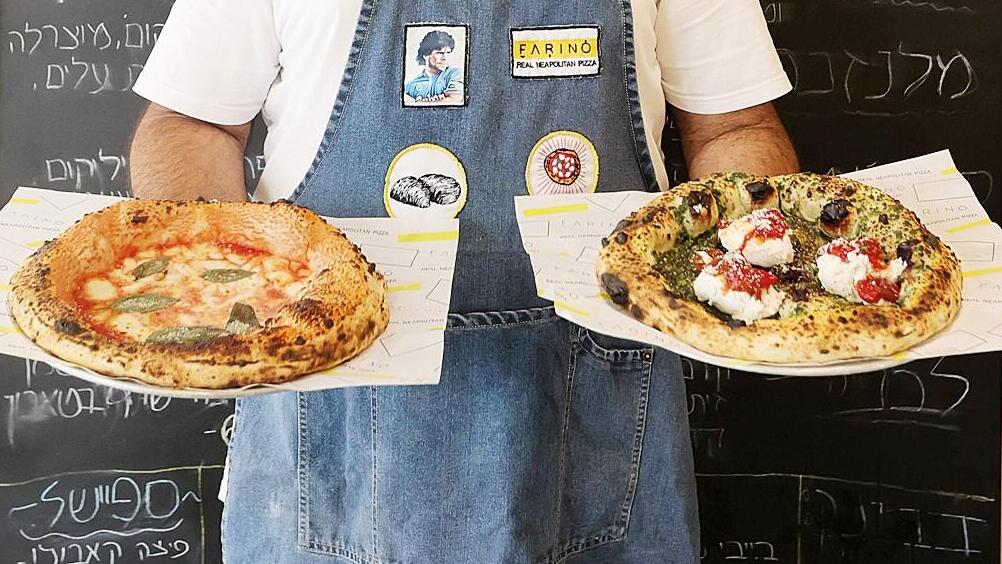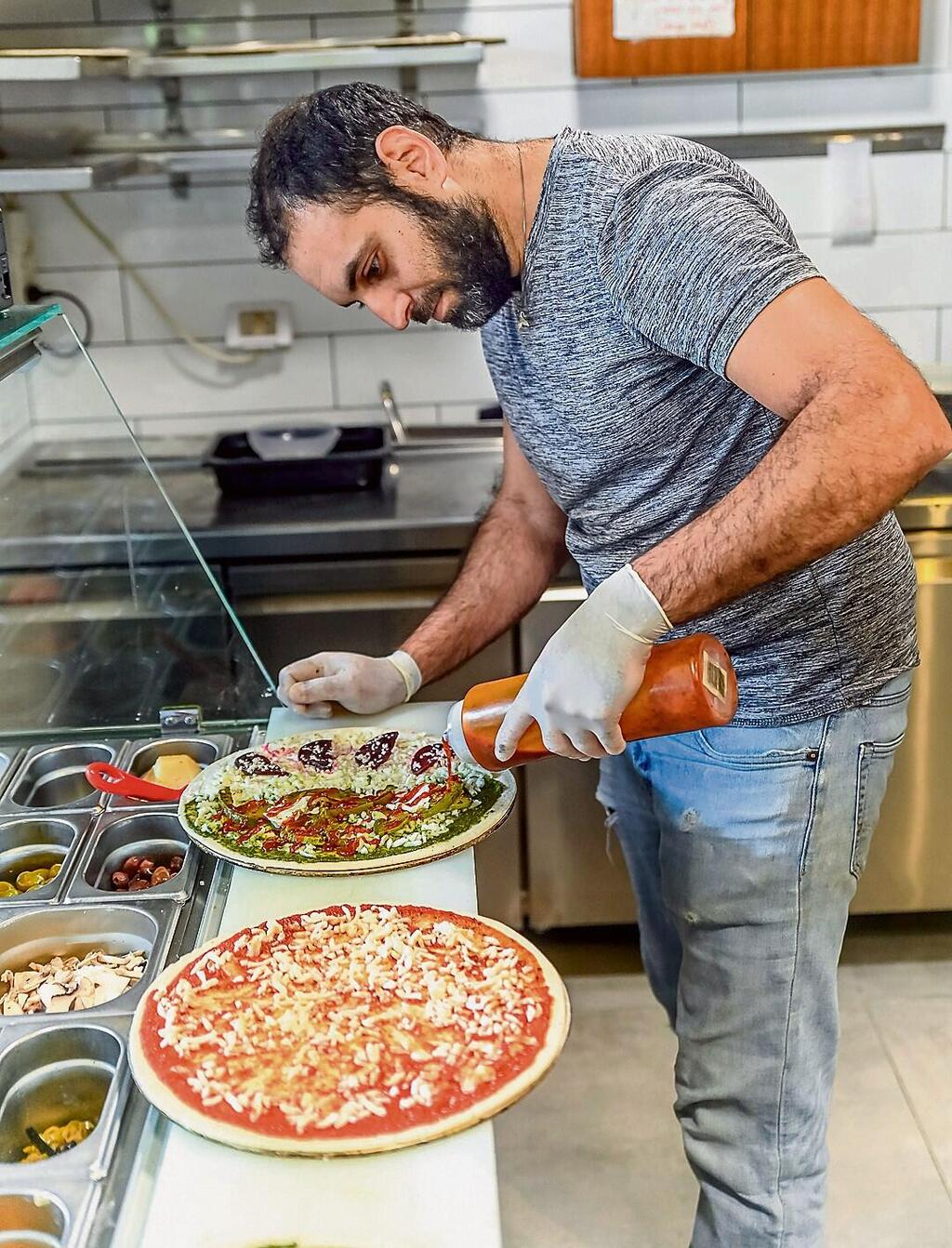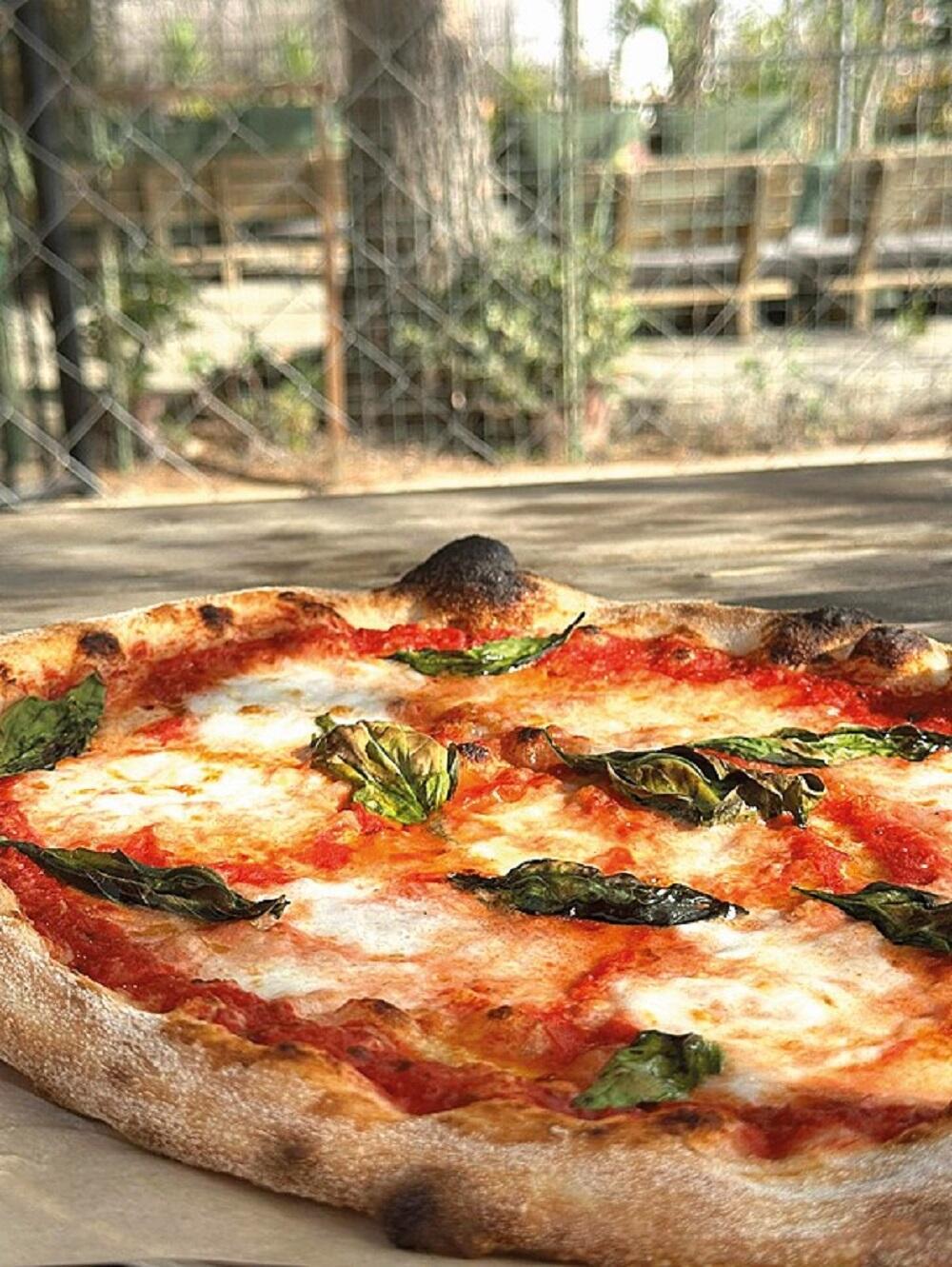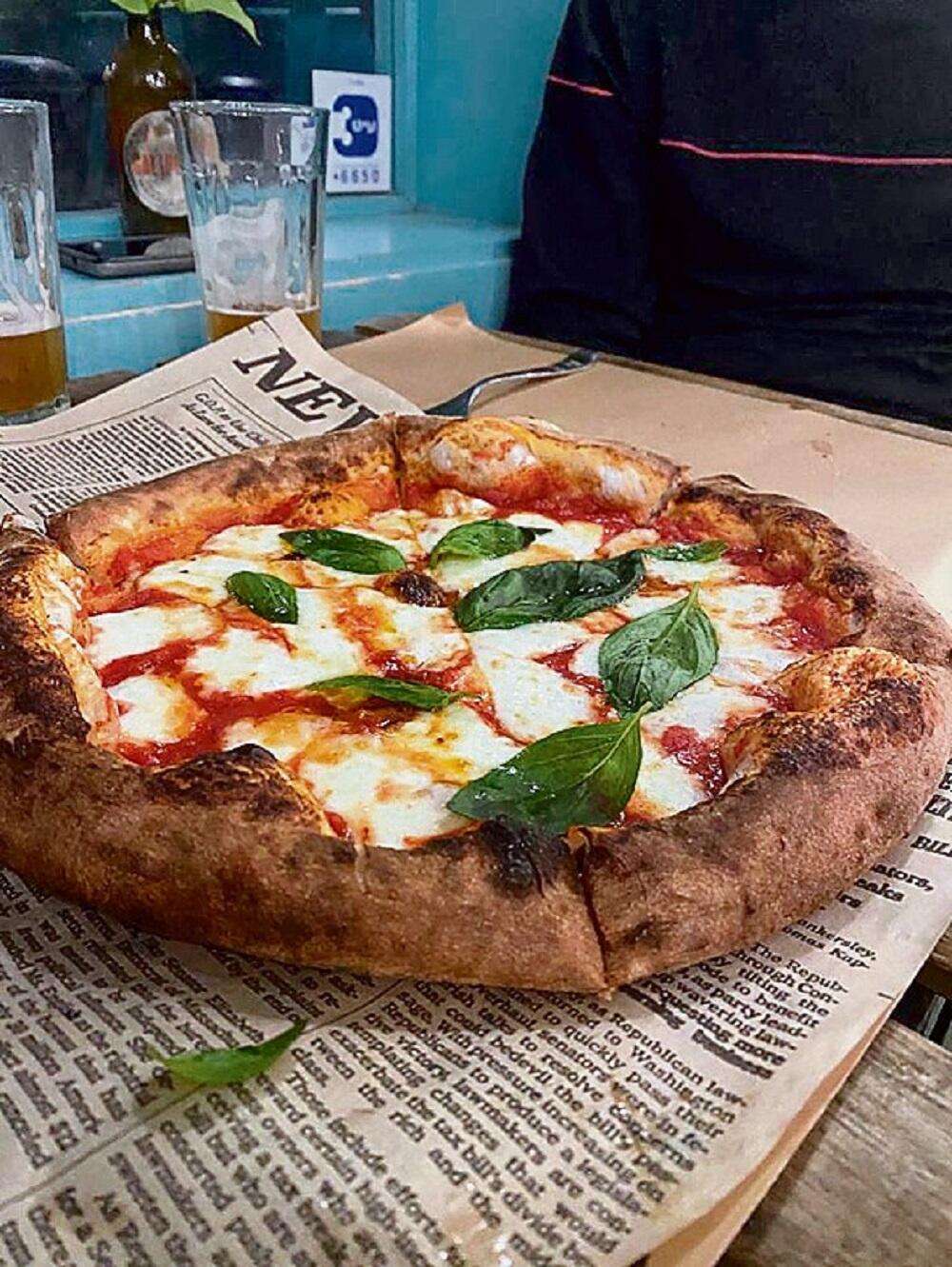In contrast to life, pizza is a forgiving dish. Something about the combination of a doughy base and the stretchy topping of mozzarella, with tomato sauce in between, creates magic. This is unlike other street foods, such as burgers and shawarma, which require precision and a high level of execution from both you and the ingredients themselves. It is almost impossible to make a terrible pizza, and believe me, I've tried. But making an excellent pizza... now that's an art. We set out to find the best pizzas across the Holy Land.
Israel's top:
Papino Pizza Bar, Ein Qiniyye
5/8
The northernmost point in the ranking is located at the foothills of the Hermon ridge, on the main road in the Druze village of Ein Qiniyye. After a short drive on a challenging road that winds between the orchards, you arrive at Pappino Pizza Bar.
The highlight of Pappino is its thin dough, which undergoes a 72-hour fermentation process and steals the show. Grated Parmesan is sprinkled over six basil leaves, which rest on sauce and mozzarella cheese, creating a good bite - but not as exceptional as the wonderful dough. On weekends, they host rooftop parties here, complete with a DJ, pizzas and alcohol. If you have additional requirements, you are people who are hard to please.
La Rustica, Beit Hillel
5/8
La Rustica is a delightful food truck next to a soccer field, with a seating area extending onto a green carpet where several round wooden tables are scattered. "I built the cart, designed the place, and my kitchen is composed of zero spices," owner Tomer Ben Simchon says. "Just salt, pepper, olive oil, butter and thyme. The rest of the flavor is provided by the fire from the taboon (clay oven), which runs on gas and wood."
The cheese here is dry mozzarella imported from Switzerland; the tomato sauce gets a boost from basil grown in Ben Simchon's private garden, and the dough recipe is, as he attests, "yeast, water, salt. Peace out."
La Rustica's pizza is tasty, but it's a bit hard to call it a classic Neapolitan, and its “hard” texture doesn't evoke the original's puffy and airy crust. And that's okay; there are no points for adherence to tradition, just for flavor. The mozzarella was generously distributed, and together with the dough and sauce, resulted in wonderful bites. It was slightly disappointing that the edges hadn't fully puffed up. "I'm sorry you came today of all days; I was doing a small test with the dough," he responded honestly. It happens. It is still a pizza that brings great honor to the Galilee, and not just relative to someone who had not worked in the field until two years ago.
Pizza Fresca, Afikim
8/8
To describe the pizza in one word: Wow. The crust is stunning, crispy on the outside and still just the right amount of soft on the inside. It's eaten with a knife and fork, as befits a classic, soft Neapolitan, but hands work just as well. Nobody here is judgmental.
To the dance of the sourdough crust, the cheese, and the sauce, precise aromas of basil join in, along with a subtle smokiness from the wood-fired taboon, with no gas used, that reaches a peak of almost 900 degrees Fahrenheit. It would be audacious to wonder if a better pizza could be made.
NeoPolitan, Haifa
8/8
This pizza begins with an all-sourdough crust that rises for 36-48 hours, and ends as a precise and classic Neapolitan, the kind you must eat with a knife and fork because the soft dough gives way, the sauce is liquid, the cheese is moist, and the olive oil that is added as it comes out of the taboon creates the perfect bite.
Dolce, Raanana (kosher)
7/8
The Neapolitan pizza at Dolce is meticulous, with no attempt to pander to the Israeli palate, but rather from an understanding that when it comes to quality pizza, any palate will quickly adapt.
It is the result of an Italian fermentation process, dough that can rise for up to 70 hours, and fresh mozzarella from Gad Dairy. Sixty seconds in an oven at over 900 degrees Fahrenheit gives it the desired char on the edges. The dough and the cheese were outstanding; the sauce wasn't always noticeable, but the result is an excellent pizza.
La Tigre, Tel Aviv
7/8
Although Tel Aviv’s Florentine neighborhood has more pizzerias than humanities students, the city isn't overflowing with Neapolitan pizzerias that strive to adhere to tradition, featuring soft, pillowy dough and a moist texture, served alongside scissors, a knife and a fork as utensils.
At La Tigre, the pizza-making process begins with dough that is allowed to rise for 72 hours, with a 70% water content, mozzarella cheese imported from the Campania region of Italy and San Marzano sauce that also hails from the boot-shaped country. On one hand, there's no reason to be dazzled by brand names just because they originate in Italy, but on the other hand – when it works, it works.
Teder, Tel Aviv
6/8
The imposing pizza is the largest on the ranking, and also the most expensive, priced at NIS 98. It comes with a thin and crisp crust – which is at times completely charred on the edges – thick mozzarella chunks, and above all, the most delicious pizza sauce you can find.
This is one of the best pizzas in Tel Aviv. The two dips served on the side are fantastic, and the sauce is a highlight. However, despite its size, the price doesn't quite justify it.
Super Pizza, Tel Aviv
8/8
We came for a Margherita and received a pizza with a delicate crust that melts in the mouth without cutting it. The second advantage of Super Pizza is the double baking, first in an iron oven and then on a stone, which is responsible for that addictive crust.
A spicy orange dip made of preserved lemon and hot peppers is served alongside the pizza, and it would be a mistake not to use it. We have not tasted a better Roman pizza than this one in Israel.
Flora, Jerusalem (kosher)
6/8
This is a great pizza. Thin, crunchy, and light. Half American, half Neapolitan. The sauce and the cheese didn't particularly stand out, but the dough, the bar and the people who frequent this place rightfully turn Flora into a place to try out.
La Piedra, Jerusalem (kosher)
6/8
La Piedra menu offers Margherita and Neapolitan pizzas. The price difference between them is only a few shekels, but there is a significant taste difference in favor of the latter, which comes with Pecorino cheese, fresh mozzarella and olive oil. The Margherita comes with the same sauce, but with dry mozzarella, which in my opinion is less successful.
It felt like the pizza did not try to copy the classic style, but rather adapt to the Israeli palate. One could argue about the need for such an adaptation, but it isn't necessary because the result is delicious. The pizza's crispiness extends to the edges of the dough - a result of respectable baking at 900 degrees - and in many ways, it resembles a solid American pizza.
With an American flavor, Italian spirit and a Spanish name, it might feel more like a place to catch a sportsball game with your friends, but it passed the taste test with flying colors.
Se Tu, Rishon Lezion
5/8
The name of the place (spelled incorrectly) was given because initially, they sold only pizza, malabi (a type of dessert), and beer here - c'est tout. Since then, the menu and the bar have expanded.
The pizza here is called Neapolitan, but the slices are firm, the mozzarella is stringy and the result evokes different influences. In the end, it’s a pizza bar that is pleasant to sit in, and it serves great bar-style pizzas. In a good way, sometimes that’s exactly what the soul is craving, but it is, after all, bar pizza. c'est tout.
Farino, Ashdod
7/8
The pizza served here is easily one of the best Neapolitan pizzas in the country, made from raw materials that, except for the mozzarella, are all imported.
Caldo Gourmet Pizza Bar, Be'er Sheva
4/8
The pizzeria is considered by many to be the best in the Negev capital and boasts 70 types of toppings - including a variety of meats, seafood and vegan options. In the taste test, Caldo was not among the best pizzas I've had in this category. The Italian tomato sauce is made with parsley, cilantro, garlic, and basil; the result is too strong and has a lingering taste. The cheese felt like that of a well-known frozen pizza, the dough was thin and fine, but lacked distinct edges. And in a pizza that tries to be American, it's hard without a crust.
Caldo opened in 2012, making it one of the oldest pizzerias in this ranking. The staff was great, and the selection of toppings is something to be envied. The establishment's longevity is a testament to its success while too many other pizzerias were forced to close. Perhaps because of this longevity, there was an expectation for better pizza. It is possible that we just happened to visit on a bad day.
Kaparuchka, Arad (kosher)
4/8
The pizza here is the result of trial and error; it's thin and crispy, delicious and simple. Kaparuchka is worth a stop on the way to the Dead Sea, or a special visit for those who feel the need to breathe in the strong desert air into their lungs and unwind a little.
Fortuna, Eilat
6/8
The pizza we tasted is the third version here, after an attempt to work with a sponge dough starter, which was discontinued due to difficulties in achieving consistent results. The Margherita at Fortuna is excellent; the sauce was a bit too dominant, but good enough that it wasn't a problem.
The inspiration here is Neapolitan, and the result is a crust that is firmer and not puffed up at the edges like the original, but it is a great canvas for working with toppings and is also successful without them.



